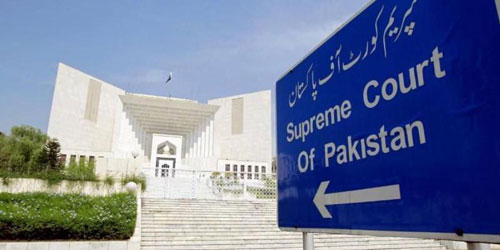The Supreme Court rejected on Wednesday the Sindh government’s request seeking an injunction on a Sindh High Court order, and directed committees formed to oversee flood relief work to continue working. The apex court also stopped the committees formed under the chairmanship of a civil judge from interfering or controlling rehabilitation work.
The SC directed the committees to submit progress reports on the rehabilitative work to the SHC.
A case is presently being heard by a two-member bench headed by SHC Chief Justice Ahmad Ali Sheikh against a petition regarding the assistance and relief work for the flood victims of Sindh.
According to the public prosecutor, district and sessions judges had been overseeing all rescue operations, and in the presence of judicial supervision, the appeal for further regulation is not admissible.
The SHC Sukkur and Larkana benches had formed committees to monitor the relief and rehabilitation work of the flood victims. The provincial government had challenged an interim order of the high court in the SC.
The top court has now directed the supervisory committees to continue working for the relief and rehabilitation of the flood victims, while restraining the committees formed under the chairmanship of the civil judge from interfering and controlling the rehabilitation work of the flood victims.
Upon the appeal of the provincial government, the court also issued notices to the parties concerned. “The natural disaster has affected the lives of people,” observed Chief Justice Umar Atta Bandial.
“The Sindh government considers the formation of committees to be an interference in the relief operation on part of the executive,” the CJ remarked, “we shall serve notices to the parties of the case”.
“Suspend the SHC orders alongside the notice,” pleaded the Sindh Advocate General.
“The high court has issued the decision for the protection of fundamental rights,” responded Justice Mansoor Ali Shah.










